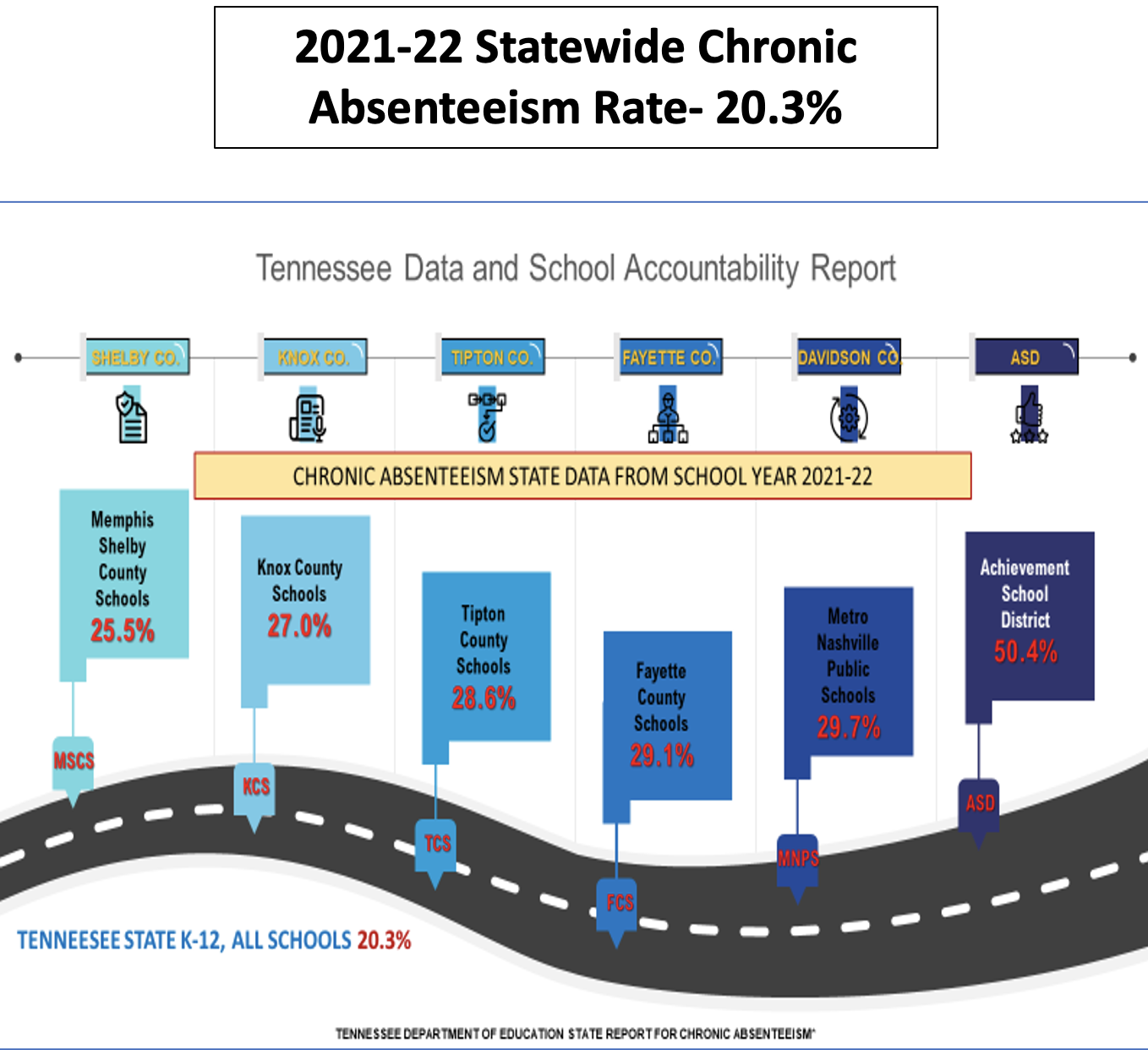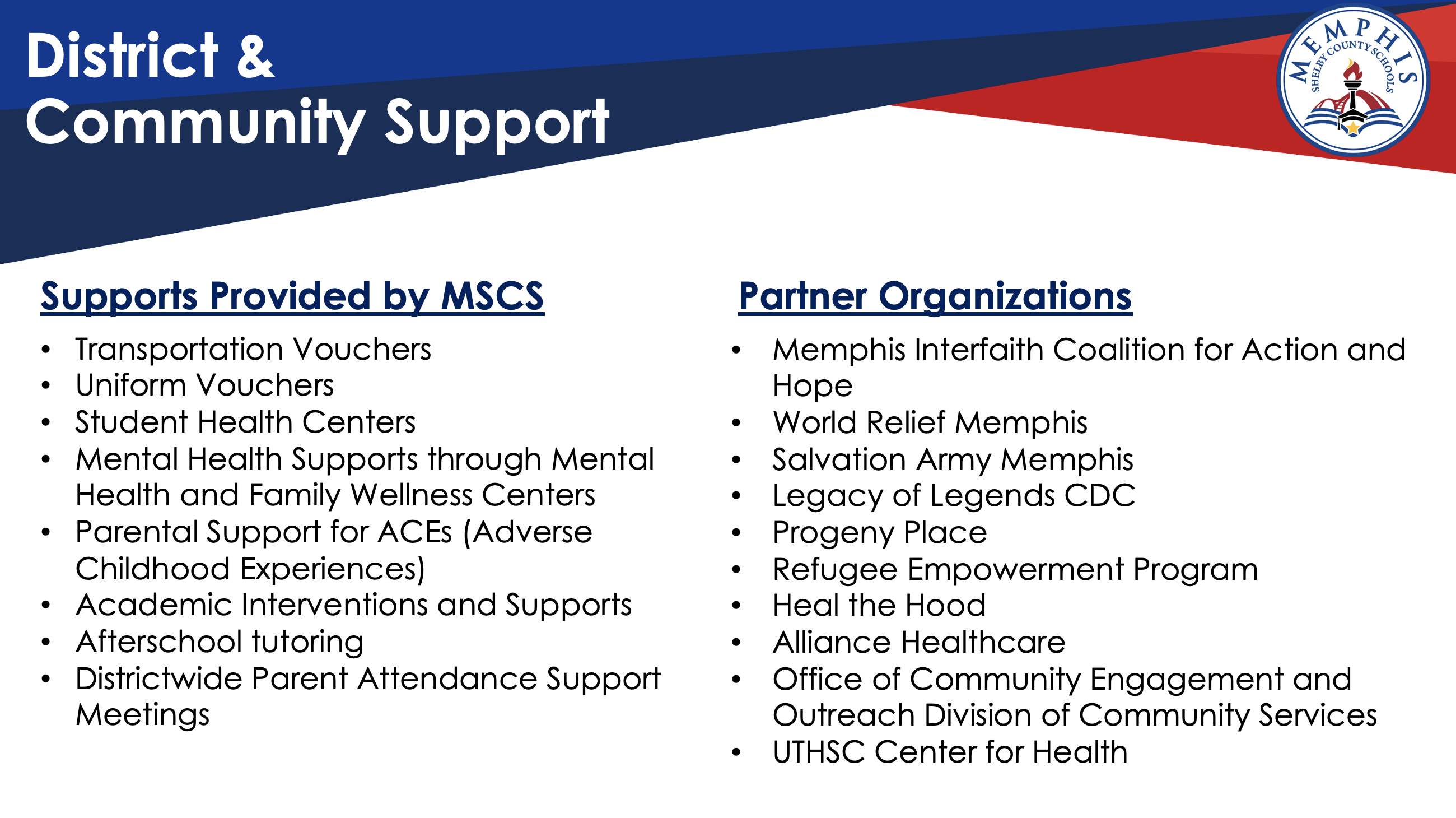
Community Care as a Pathway to Support Students
I was born and raised in Memphis. You don't need to be from Memphis to know everything that makes Memphis special. We have a rich history of food, music, dance, and social justice, all of which bring our community pride. We also have schools trending up in enrollment. MSCS and District-managed charter school enrollment has grown. In 2021-2022, our enrollment was 102,282. This year, we're up to pre-pandemic numbers with 105,285 students enrolled.
Unfortunately, Memphis also has a citywide issue with crime, and this challenge has various sources and responsible parties. Understandably, people want to know why this is happening and how to solve it. Some officials have connected the teens in our community with a rise in crime and blame chronic school absenteeism. This conclusion was based on MSCS absenteeism rates without acknowledging that criminal behavior has many roots, which are often not driven by absentee rates. The answer to reducing crime is not criminalizing all absentee students. Instead, let’s work together to provide our most vulnerable students with the necessary support.
The Data

It’s a sobering truth that 25.5% of MSCS students and 50% of students in the state-run Achievement District were chronically absent in 2021-2022. It’s also true that most school districts saw a spike in chronic absenteeism following COVID-19 surges, especially in communities with high populations of economically disadvantaged students. Since chronic absenteeism involves unexcused and excused absences, the students may have missed class due to COVID exposure and illness, been in households where they needed to care for younger and ill siblings so parents could work, or they may have been affected by mental health challenges. These are just a few frequent national reasons for absenteeism over the past two years.

Addressing Chronic Absenteeism
In our November Committee Meeting and working closely with the MSCS Board, we are addressing chronic absenteeism by taking the following actions:
- Investing in additional staff to support the top 25 schools with the highest chronic absenteeism and truancy rates.
- Re-establishing the Attendance Task Force with city and county government agencies and community partners.
- Investing in absenteeism tracking and monitoring systems in addition to strengthening parent notification methods.
- Partnering with Juvenile Court to strengthen truancy processes for the most flagrant cases.
- Continuing to provide students and families with internal and external supports.
We must work together to address the root causes of absenteeism by ensuring our community has the human and financial investments necessary for an educated workforce, job opportunities, and mental health support and services. Blaming chronic absenteeism will not stop our city’s crime issue. Rather, it’s time for our community to care for its most vulnerable and recognize our collective power to find viable and longstanding solutions together.
Best,
Toni Williams, MSCS Superintendent & CFO